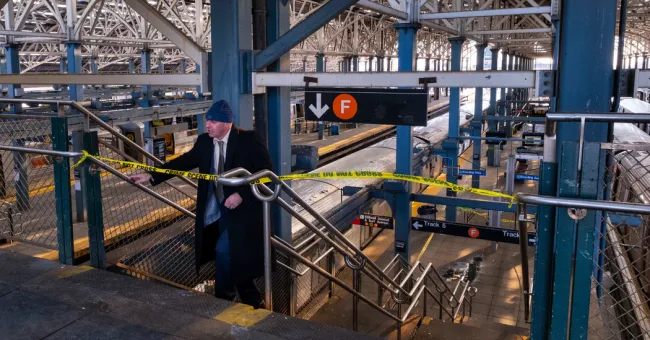"Blackout Drunk" or Heartless Killer? Sebastian Zapeta-Calil’s Shocking Excuse in Subway Immolation Case
Sebastian Zapeta-Calil, accused of setting Debrina Kawam on fire as she slept on a New York City subway, has offered a stunning defense: he claims he was too drunk to remember. But let’s not sugarcoat it—this wasn’t a drunken accident. It was a deliberate act of violence that ended the life of a 57-year-old homeless woman. And now, Zapeta-Calil has the audacity to plead not guilty.
When detectives confronted him with the chilling surveillance footage of the December 22 attack, his reaction wasn’t one of guilt or remorse. Instead, he casually remarked, “Oh, damn, that’s me.” That’s his defense? Zapeta-Calil, an undocumented migrant from Guatemala, allegedly used a lighter to ignite Kawam’s clothing, fanned the flames with a shirt, and then stood by as she burned. Now he expects us to believe he was too drunk to know what he was doing? Give me a break.
This excuse is as flimsy as it is infuriating. Zapeta-Calil faces charges of first-degree murder, second-degree murder, and arson—charges that could send him to prison for life without parole. Yet instead of taking responsibility, he’s hiding behind the worn-out “blackout drunk” claim. Meanwhile, Debrina Kawam, a woman who had already endured the struggles of homelessness, met a horrifying and undeserved end.
The case has sparked widespread outrage—not only at Zapeta-Calil but at the broader failures of the system. Why was a man with a history of substance abuse and mental health issues left without proper support? And why, in a city that claims to prioritize public safety, are vulnerable people like Kawam still so exposed to danger in public spaces?
Brooklyn District Attorney Eric Gonzalez has vowed to pursue the “most severe punishment” for Zapeta-Calil, describing the crime as “atrocious and horrific.” But for many New Yorkers, that promise feels inadequate. They want answers. They want accountability. And they want to understand how such a preventable tragedy could happen.
As Zapeta-Calil awaits his next court date on March 12, one thing is certain: this case isn’t just about one man’s alleged actions. It’s a stark reminder of the broken systems that enable such atrocities. And until those systems are addressed, how many more Debrina Kawams will suffer?
The real question isn’t just whether Zapeta-Calil is guilty. It’s whether we, as a society, are ready to confront the deeper issues that made this tragedy possible. Because if we don’t, we’re all complicit.
